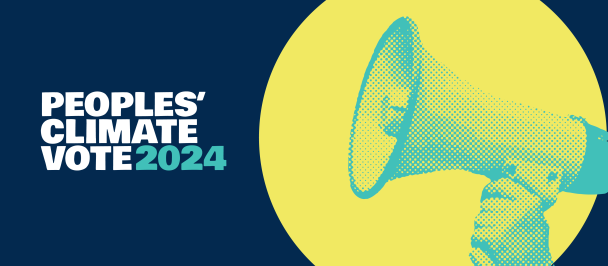
Visiting delegation of Government officials, UNDP and UK's FCDO get an understanding of how an Automated Weather Station works in Hakwata, Chipinge
The Climate Adaptation Water Energy Programme (CAWEP) has been a pivotal initiative funded by the Foreign Commonwealth Development Office (FCDO) and implemented by the UNDP. Launched in August 2022 and running until November 2025, the programme aims to bolster the resilience and adaptation capacity of vulnerable communities and institutions in Zimbabwe against climate shocks and crises.
Project Overview and Objectives
CAWEP focuses on the development of climate-resilient multiple-use water and renewable energy infrastructure in vulnerable communities. The primary goal is to ensure continued access to water for productive and household use even during droughts and floods and to provide clean and affordable energy to support economic activities. This aligns with Zimbabwe's National Development Strategy 1 (NDS1) and various governmental climate change priorities.
The project’s objectives are encapsulated in several key outcomes:
- Enhanced Resilience and Livelihoods: Supporting vulnerable communities, and public institutions to build resilience against adverse effects of climate Change
- Poor & vulnerable households become more adaptive to effects of climate change through sustainable access to long term climate resilient and multiple use water and renewable energy infrastructure
- Community livelihoods are improved through reliable access to and use of irrigation infrastructure.
- Community climate change adaptation capacity improved as a result of access to reliable weather and climate information (EWS).
- Inclusive and Sustainable Economic Growth: Fostering economic growth with decent employment opportunities, particularly for the most vulnerable and marginalized.
Achievements and Progress
1. Renewable Energy and Water Infrastructure
Chipinge and Mlibizi: Utilization of completed renewable energy and irrigation infrastructure has significantly improved access to water and energy. For instance, the Saba Green Valley Irrigation scheme and four nutrition gardens in Mlibizi started harvesting sugar beans and maize, enhancing food security and household incomes amid the El Nino-induced drought.
Hakwata: Improved access to clean energy facilitated the establishment of new businesses such as carpentry and welding shops, creating green jobs and increasing household incomes.
During the recent visit from 23-26 July 2024, the UNDP Resident Representative (RR) Dr. Ayodele Odusola, and the British Embassy Development Director and Deputy Ambassador Dr. Jo Abbot, observed significant progress. The delegation visited the Hakwata project site, where they toured the solar mini-grid and other infrastructure. The 200 kWp solar PV and 915 kWh capacity battery bank of the mini grid were highlighted as crucial in providing sustainable energy to the community. This infrastructure supports 105 connections, including households, shops, a school, and a clinic, improving access to clean electricity for 12500 people.
Community Feedback: The visit included interactions with beneficiaries like Dora Sigauke, a widow whose children now study at night due to the solar lighting system, and Enia Chikweshe, who benefits from a biogas digestor for cooking, significantly reducing her need for firewood and exposure to smoke.
2. Community Livelihoods
The programme has supported 117 people in gaining green and decent jobs. The renewable energy infrastructure led to the creation of various small enterprises in Hakwata, enhancing local economic activities and providing alternative income sources during agricultural off-seasons. The training of 247 youths in Vocational Skills in Hakwata will lead to the creation of more green jobs as enterprises are developed from these skills. A further 500 youths will be trained in Insiza, Binga and Chivi.
The team visited a biogas digestor at Enia Chikweshe’s homestead, highlighting its impact on reducing the burden of firewood collection and improving household health and income through vegetable gardening. Similarly, the Hakwata business center has seen a transformation with electricity access, allowing businesses to expand and diversify their services.
3. Climate Change Adaptation and Early Warning Systems
CAWEP significantly improved the capacity for climate adaptation through the installation of 18 Automated Weather Stations (AWS) and the dissemination of weather and climate information. The project reached almost 184,000 recipients with timely advisories, helping communities plan and respond to adverse weather conditions.
4. Policy and Strategic Development
The programme has contributed to the development of critical policies and strategies, including the National Energy Efficiency Policy and drafts for the Clean Cooking Strategy and the National Adaptation Plan. These efforts aim to provide a robust framework for sustainable climate adaptation and resilience strategies.
Challenges and Lessons Learned
Despite the significant progress, the project faced challenges such as human-wildlife conflicts and drought-induced crop failures. Effective mitigation strategies such as local safeguarding plans and enhanced community engagement have been crucial in addressing these issues. Additionally, capacity building and stakeholder involvement have been pivotal in ensuring the sustainability and success of the project.
Conclusion
The CAWEP programme continues to make strides in enhancing the resilience and adaptation capacity of Zimbabwe’s vulnerable communities. By improving access to water and clean energy, creating jobs, and developing strategic policies, CAWEP is laying a strong foundation for sustainable development and climate resilience in Zimbabwe.
The recent visits to project sites in Hakwata, Chivi, and Insiza highlighted the tangible impacts of the programme. Beneficiaries expressed their gratitude for the interventions, and stakeholders emphasized the importance of sustainability and continued collaboration to achieve long-term development goals.

 Locations
Locations



